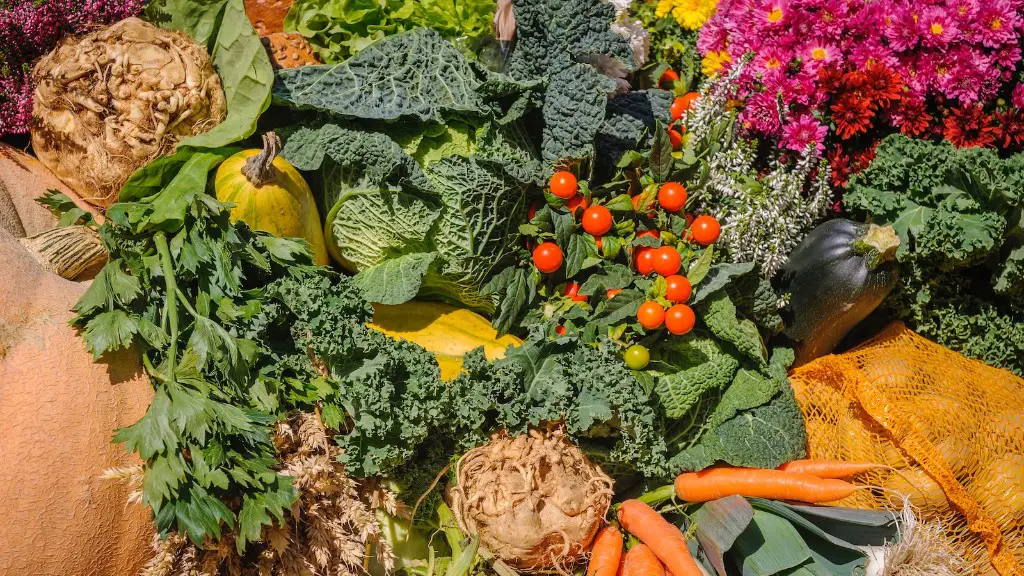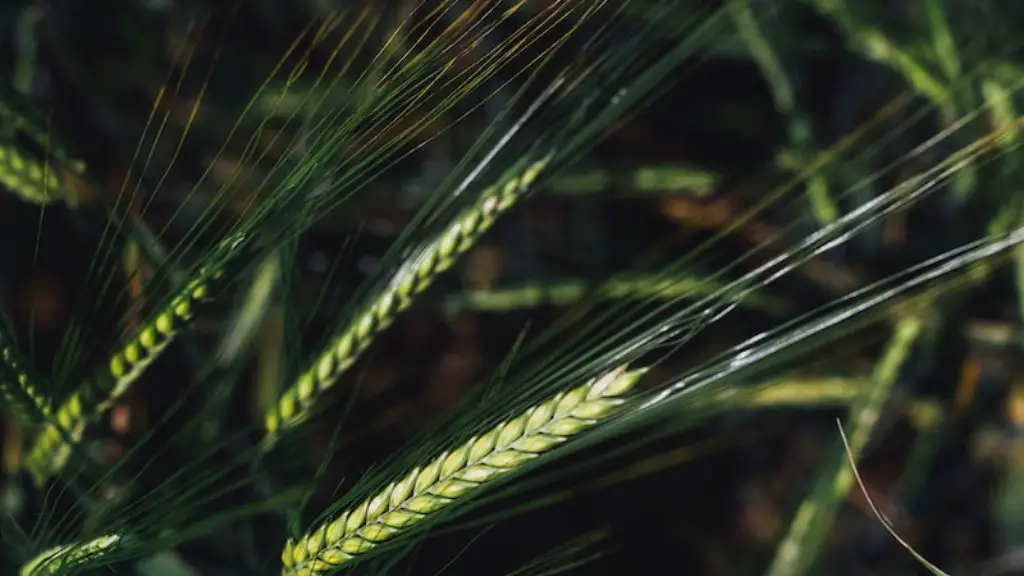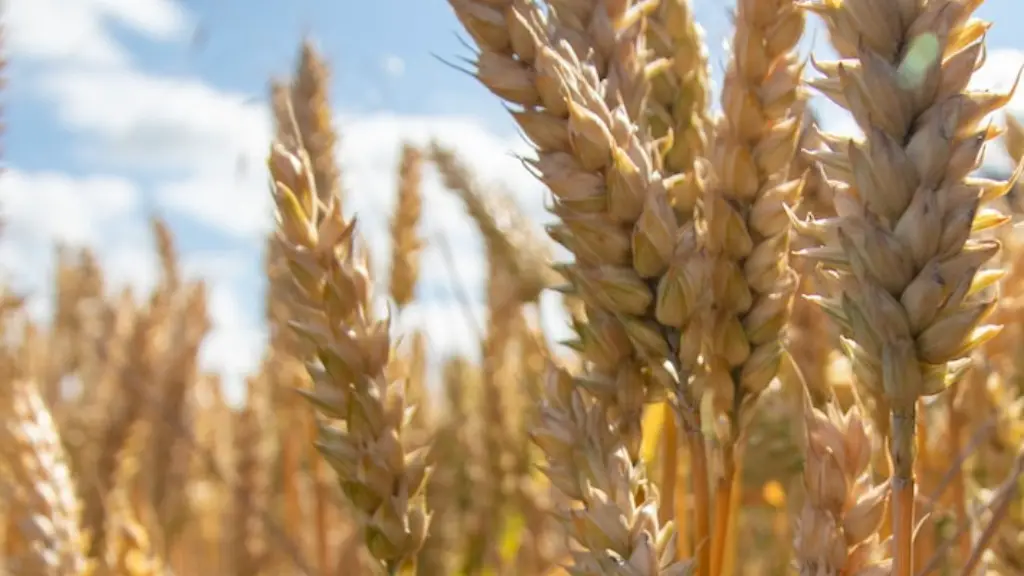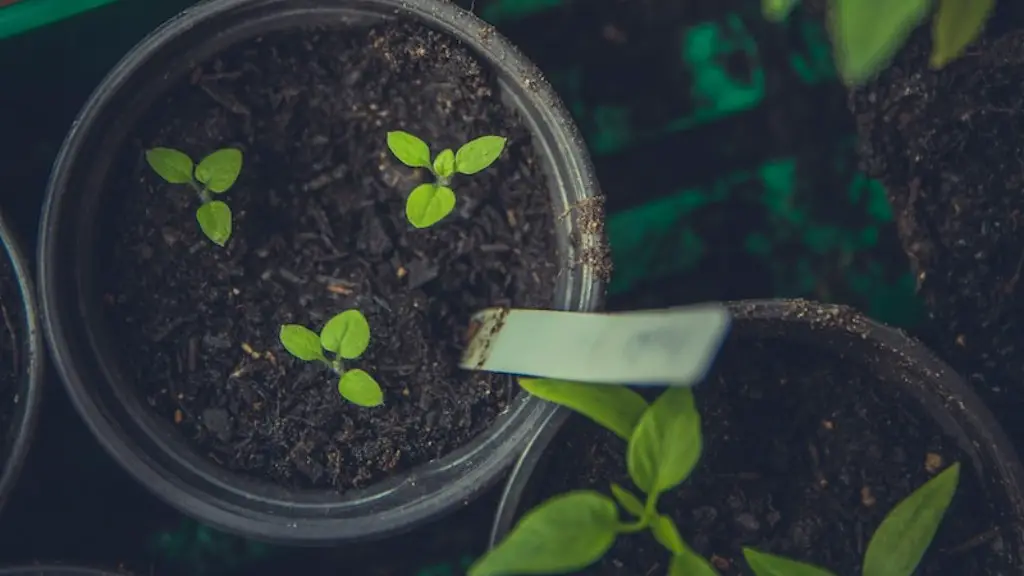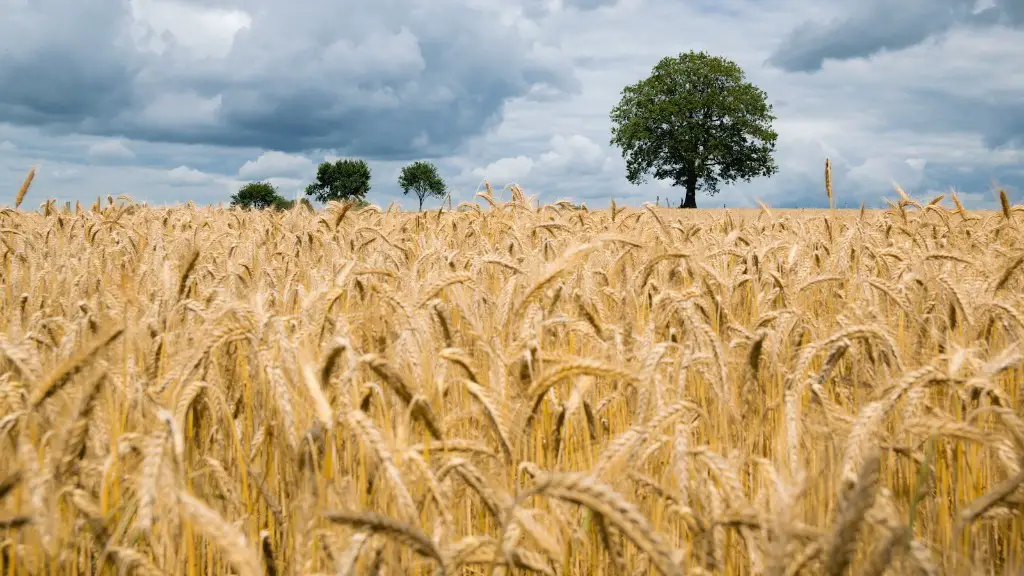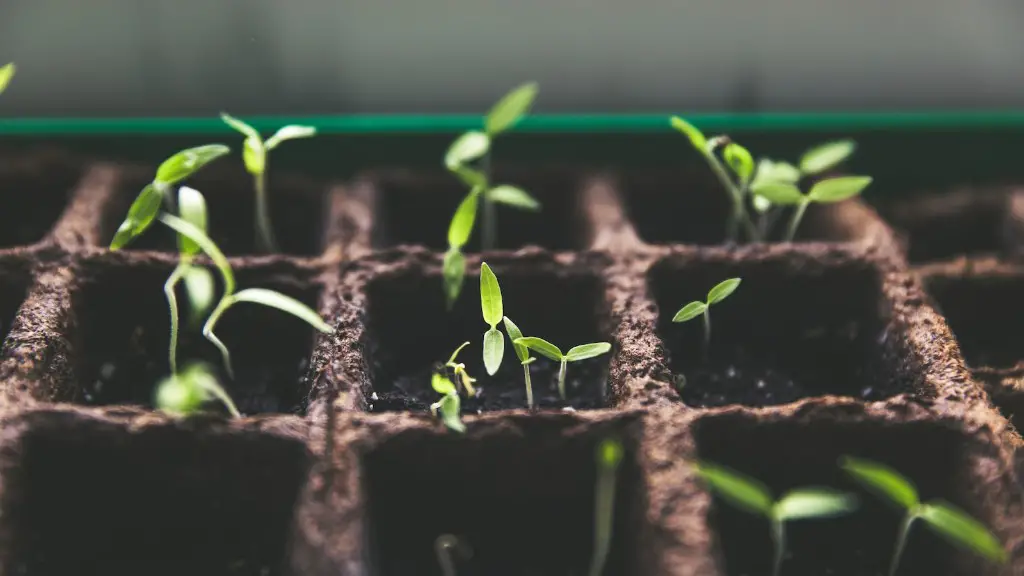Agriculture has long been considered a biological science, and yet there is an ongoing debate about its status in the scientific world. Even though some may not recognize it as a scientific discipline, the activities of farmers, agricultural scientists, and researchers have been an integral part of human progress. The relationship between agriculture and biology is complex and diverse, and an understanding of both is necessary for its successful practice.
Agriculture is an applied discipline that is based on biological science, and it relies heavily on the knowledge and understanding of the biological sciences. It utilizes the latest in natural and biological sciences to maximize the production of food and fiber. Furthermore, many of the concepts used in agricultural production and management draw heavily from basic biological sciences. This includes the microbiology of soils, plant nutrition, plant physiology, plant genetics, and insect behavior.
The importance of agriculture to humanity is significant. It provides a substantial portion of the world’s food supply and is responsible for much of the world’s economic stability. It also plays a role in improving the environment by managing the balance between land availability and agricultural yields. As such, agriculture touches almost all aspects of life, both socially and economically.
In this way, agriculture is a science that integrates biological knowledge, principals, and technology to promote and improve sustainable agroecosystems. It also involves manipulating biological resources to create and maintain ecosystems that are productive and beneficial to humans. In its essence, agriculture involves a steady process of improving land and growing crops to produce healthier, higher quality products.
Agricultural studies rely on the basic principles of biology, such as genetics, ecology, biochemistry, and physiology. It also requires knowledge in plant studies, animal sciences, and resource management. Agricultural scientists assess and analyze various factors that affect plants and animals in various regions, including soil quality, moisture, and temperature. This information is then used to develop better methods for increasing production and preserving agricultural resources.
Today, there is a wide range of technologies being utilized that is helping to improve agricultural efficiency and production. Technologies such as controlled-environment agriculture (CEA), vertical farming and hydroponic systems, provide an invaluable way for farmers to manage their resources more efficiently and effectively. These cutting-edge technologies help reduce the impact of traditional farming on the environment, while producing better yields and quality products.
In conclusion, it is clear that agriculture is a science, and it can be said that it is a biological science due to its close ties with the biological sciences. It requires a comprehensive understanding of the fundamentals of biology as well as other scientific disciplines, such as agronomy, soil science, and entomology, in order to be successful. As such, agriculture has become an integral part of human life, and its importance and relevance to our lives cannot be denied.
History of Agricultural Sciences
Throughout the history of human civilization, agriculture has been at the forefront of economic and social progress. Humans have used the principles of agriculture to manage and cultivate land and resources, to raise food and fiber products and to build and maintain communities. Agriculture has been a central factor in the development of cultural, political and economic systems for centuries, and, in many cases, it has been the basis of civilizations.
The traditions, methods and concepts of agriculture were documented in early written records as far back as 4500-3000 BCE in Egypt and Mesopotamia, and in China during the Shang Dynasty (1766-1122 BCE). By 500 BCE, the Greek philosopher Hippocrates (460-370 BCE) wrote extensively on the workings of the human body, diet, and disease, and the importance of the environment to human health. He wrote about temperate climates, soil types, and planting schedules, all of which were part of the early foundations for agricultural sciences.
By the 1st century BCE, Romans had developed complex agricultural techniques, such as irrigation and fertilizer. In addition, they established an economic system that created incentives to increase production and sustain farming practices. In 600 CE, the Islamic world established a strong legal and religious infrastructure in the region, and this helped create a strong foundation for agricultural science. Through the medieval era and into the early modern era, practices such as crop rotation, soil conditioning, crop rotation and animal husbandry were implemented to increase the efficiency and productivity of agriculture.
Modern science began to develop in the 17th century, and while its focus was on physics, mathematics, and chemistry, it did include some aspects of biology, such as evolutionary theory and genetics. In the 19th century, the term ‘agricultural science’ came to prominence as the notion that ‘food production and resource management could be improved through the use of scientific methods’ began to spread. As more researchers and practitioners began to consider agriculture as a science, more sophisticated techniques for farming and food production began to be developed.
Today, agriculture plays a vital role in global economic health and security, as well as in sustainable development. Agricultural science continues to evolve as new technologies and methods are developed. It relies heavily on the principles and knowledge of basic biological sciences, as well as chemistry, genetics and engineering. By understanding the science of agriculture, we can more effectively meet the needs of global populations and protect the environment for future generations.
Modern Agricultural Practices
Modern agricultural practices are far different from the traditional farming methods used throughout history. The use of modern technology and science enables farmers to increase production and efficiency while using fewer resources. Today, farmers rely on a range of advanced machinery and equipment to bring in the harvest, and they also use a variety of modern technologies to manage their resources and increase yields.
One of the most important advances in modern agriculture has been the development of genetically modified organisms (GMOs). These organisms are developed through the introduction of genetic material from another species in order to give the plant or animal unnatural characteristics that can increase its efficiency or yield. For example, a strain of corn may be developed with increased resistance to drought or pests, or a strain of wheat may be designed to produce higher yields with fewer inputs.
Other modern agricultural technologies include hydroponics, which is an indoor growing technique that utilizes nutrient-dense water instead of soil to grow crops, and precision agriculture, which relies on satellite imagery and computerized farming technology to manage and optimize individual fields. The use of robots and unmanned aerial vehicles (UAVs) is also becoming more common, as they can be used to monitor crops, provide pest control, and identify stressed or diseased plants.
In addition, the use of biofertilizers is becoming increasingly popular, as they provide essential nutrients to crop plants and help reduce reliance on chemical fertilizers. Other beneficial technologies, such as vermiculture (the use of worms to break down organic matter) and beneficial insect farming, are also becoming commonplace, as they help improve the health of the soil and increase crop yields.
The use of these technologies has allowed farmers to increase yields and reduce the amount of harmful chemicals and pesticides used in modern-day agriculture. Moreover, it has allowed for the development of more efficient and profitable farming operations. As such, modern agriculture is increasingly reliant on the principles of biological sciences and technologies to maximize productivity and reduce costs.
Organic Farming Practices
Organic farming is a type of agriculture that seeks to produce food and fiber in harmony with nature and without the use of synthetic inputs such as chemicals, fertilizers, and pesticides. Organic farming is based on natural cycles, with the use of natural products, such as compost and manure, to fertilize the soil and crops. The goal of organic farming is to improve the soil’s structure, fertility and health, to reduce the impact of pests, and to promote sustainability and the conservation of biodiversity.
Organic farming is guided and regulated by a set of standards, which are designed to ensure that organic products are produced in an ecologically sustainable and responsible manner. This involves limiting the use of synthetic fertilizers and chemicals, protecting soil health, monitoring water quality, conserving natural resources, and maintaining healthy pest and weed populations. Furthermore, organic producers must adhere to strict guidelines related to animal welfare, and they must provide proof of organic certification when marketing their products.
Despite the regulations and higher costs associated with organic farming, there is growing evidence that it can be as productive and profitable as conventional farming. When done well and with knowledge of the right principles, organic farming can be profitable and sustainable. Moreover, it offers many environmental benefits, such as improved soil health, reduced water pollution and reduced pesticide contamination. Additionally, organic products are often more nutritious than their conventional counterparts.
Organic farming is a type of agriculture that relies heavily on the principles and knowledge of biological sciences. It requires knowledge of biology, soil science, animal science and ecology. It also involves the use of natural products, such as compost and manure, to enhance soil health and nutrient uptake, and it also involves the use of natural pest and weed control methods to reduce the impact of pests. As such, the sciences of biology, ecology, and animal science are important for the successful practice of organic farming.
Sustainable Agriculture
Sustainable agriculture is an approach to farming that seeks to meet current human needs for food and fiber without compromising the environment, the local economy and the health of future generations. Sustainable agriculture utilizes a wide range of principles, practices, and technologies that are designed to conserve and protect natural resources, while producing healthy and nutritious food. It involves developing a thorough understanding of the environment and using that knowledge to create farming systems that are both productive and sustainable.
Sustainable agriculture utilizes principles from the biological and physical sciences, such as crop rotations, soil conservation, and integrated pest management. It requires an understanding of how natural ecosystems work and how best to design sustainable farming systems that mimic those natural processes. It also involves understanding the importance of preserving biodiversity, as many species have been shown to provide valuable benefits for agriculture. This includes pollinators, pest predators, and soil microbes, all of which help create a more resilient and productive ecosystem.
One of the most critical components of sustainable agriculture is the use of natural resources. Farmer’s must use resources in a way that protects their health and the environment and conserves soil, water, and energy. This involves practices such as cover cropping and conserving water, as well as utilizing renewable energy sources and minimizing waste. Sustainable farmers also strive to build soils that are healthy and economically viable over the long term. This includes using organic matter and compost to improve soil structure and fertility, and using cover crops to protect soils from erosion and nutrient leaching.
Organic farming and sustainable agriculture are heavily intertwined, as each requires the knowledge and understanding of plant, animal, and soil sciences. Moreover, organic farming and sustainable agriculture both rely on the principles of biology to ensure that the environment is protected and ecosystems are maintained. Research has proven that sustainable farming practices, such as organic farming, can be beneficial to both the environment and the local economy. As such, agriculture, and especially organic agriculture, can be seen as a type of biological science.
Conclusion
The relevance of agriculture to human life and progress is undeniable. As a result, agriculture is a science and more specifically, a biological science because of its close ties to the biological sciences. It relies heavily on the knowledge and understanding of the biological sciences and utilizes the latest in modern technologies and practices to improve efficiency and increase yields. Furthermore, organic and sustainable farming methodologies rely heavily on the principles and knowledge of biological sciences. As such, it can be argued that agriculture is indeed a type of biological science.
